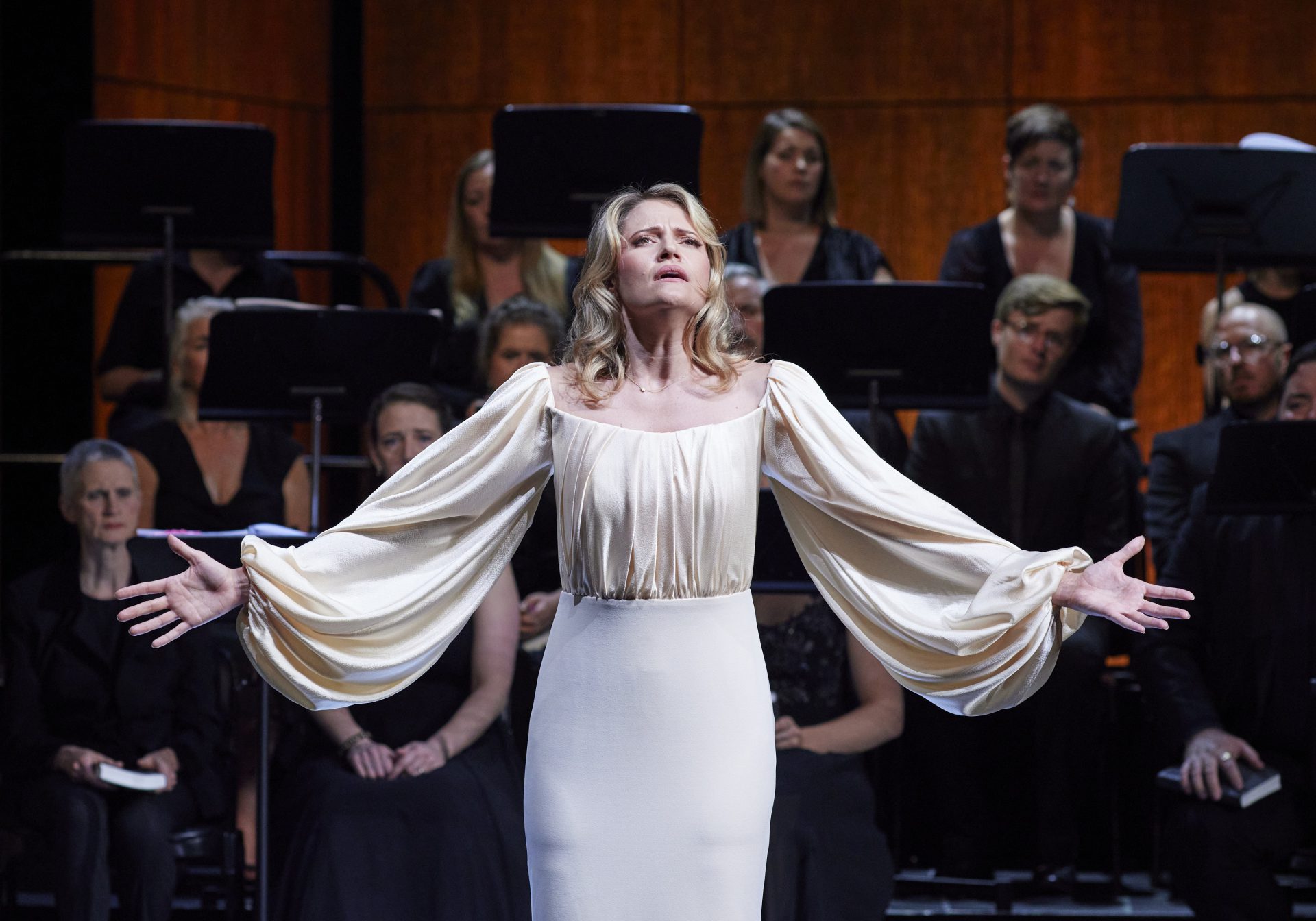It is one of those cruel ironies of composers’ fate that Handel’s Theodora was favoured more by its begetter than by its contemporary audience.
The premiere of the oratorio in 1750 was met with a frosty reception by a London audience that seemed to favour the more robust Old Testament fare – Salomon, Samson and Athalia. But Handel rated Theodora as perhaps his best oratorio. With this performance by Pinchgut Opera and Opera Australia – the former’s debut in the Joan Sutherland Theatre – one can see why.
The oratorio began with an imposing French overture. The intimate forces employed brought out the brusqueness of the bass, particularly of the bassoons. This all gave an eerie effect, lightened only by a rather galant trio. Then followed, in what might be called the overture’s B-section, a jaunty courante which seems to have been taken from the younger Muffat’s second harpsichord suite, in G minor. In true Handel style, that theme was developed beyond its original limits.
David Greco emerges as the tyrant Valens, with an animated declamation of pagan faith. He embodies the trope of the deranged tyrant, and this characterisation is consistent with the overt didacticism of this genre, which smacks of a morality play. He calls for “racks, gibbets, sword and fire” with bloodthirsty zeal, making various embellishments to the bare score. The chorus then suddenly makes itself known among a cascading melody on the strings, in a way that strangely recalls a chorale fantasia. The independence of each voice was maintained even in the “All pow’r in Heaven above” chorus, with chromaticisms marching upward and dramatic tempo changes abound.
Importantly, there was none of the horror vacui that burdens most high-momentum musical narratives. Each singer made tasteful use of dramatic pauses. The deliberate pause between “perils” and “storm and death” had great dramatic effect. The andantes in this performance were also markedly more relaxed than Pinchgut’s earlier 2017 recording of the same oratorio.
One of the highlights of the night was Christopher Lowrey’s aria “The raptur’d soul defies the sword”. Lowrey enters with a falling melisma in the silence that follows a rich introduction by the strings – a la Handel’s very own “Ombra mai fu” and “Sweet Bird”. Lowrey’s dynamic control and variety was on full display in the “Kind heaven” aria, where key phrases were amplified with ease. Here is a voice that knows how to tell a story. So too Samantha Clarke’s. Featuring in the oratorio’s key role, Clarke articulated each word with admirable clarity – a result no doubt helped by Helyard’s meticulousness – and the ‘s’s were timed to the quaver. The theme of her aria “Fond flatt’ring world, adieu!” reminds one of Bach’s earlier “Falsche welt”. Clarke’s voice conveyed precisely what the libretto evokes – a faithful spirit that is at once assured and resigned.
Act II brought with it a dramatic change of tone to the Dionysian, beginning as it does with an irreverent “Chorus of the Heathens”. But we soon descend into the soundworld of extreme pathos with Theodora’s prison aria. Mikaela Oberg on solo flute is pitted against the forces of the orchestra, and is smartly positioned on stage as the lone Christian animus standing firm against the mob. Oberg’s performance, with ever-so-faint vibrato, is achingly beautiful. The many duets with Lowrey and Clarke that followed were sung with incredible precision but gave the impression of effortless but inspired music-making – the hallmark of a Pinchgut performance.
